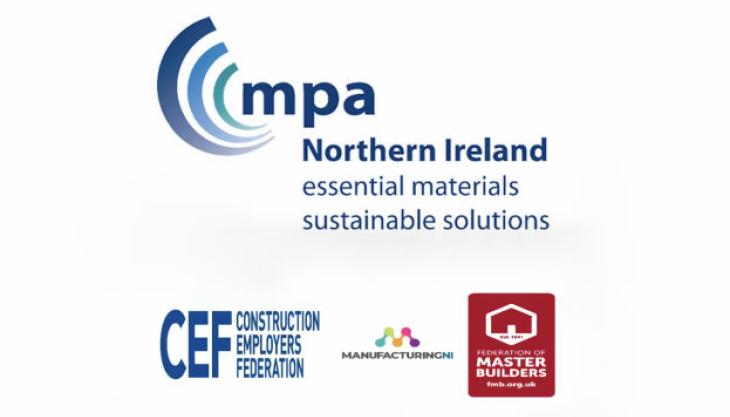Red Diesel: NI trade bodies warn of increasing costs

Costs set to increase when permitted use of red diesel and rebated biodiesel comes to an end
FOUR of Northern Ireland’s leading trade bodies for the construction, mineral products, and manufacturing sectors – the Mineral Products Association (MPANI), Construction Employers Federation, Federation of Master Builders, and Manufacturing NI – are warning that material, manufacturing, and construction costs are set to increase from 1 April 2022.
This is when many sectors will lose their entitlement to use ‘red’ diesel and rebated biodiesel across a variety of applications, with manufacturing, construction, and mineral products being the industries most affected.
In a joint statement timed to coincide with today’s Westminster Hall debate, moved by Carla Lockhart MP, the trade bodies say the estimated cost of this change in Northern Ireland will be £20–25 million per annum, whilst according to the Civil Engineering Contractors Association (CECA), losing the red diesel rebate could cost the UK construction industry between £280 million and 490 million annually.
One of the biggest changes for construction and minerals industry users is that heavy plant and equipment used for construction and mining purposes will no longer be able to run on red diesel. Moreover, these industries will no longer be permitted to use red diesel for commercial heating and power-generation purposes, such as when using mobile generators on site.
MPANI says the removal of the rebate in April 2022 for some, though not all, users comes before viable equipment alternatives are available. It says the mineral products sector in the UK produces 400 million tonnes of material a year, including 200 million tonnes of aggregates, which requires extremely powerful equipment, far beyond the capabilities of the current non-diesel equipment on the market. To be an effective replacement, non-diesel equipment will need to match the power, range, torque, and payload of diesel-powered machines.
Even assuming such equipment does become available, MPANI says there will be significant challenges in powering it, as many quarries are in remote locations and do not have an electrical grid connection, so significant and very expensive grid upgrades will be required. Similarly for hydrogen, ensuring adequate, affordable supply will be critical to weaning industry off diesel. MPANI says neither of these issues has been adequately addressed yet.
The change is also expected to lead to a significant escalation in fuel theft and create a greater risk of cross border smuggling in Northern Ireland, and as there will be no way of distinguishing between gas oil and diesel used by road vehicles, it is thought likely criminals will seek out construction plant as an easy target.
Whilst HMRC has modified its guidance, albeit constrained by the letter of the law, and says it will take a pragmatic approach to enforcement, with the focus being on businesses that are stockpiling or clearly going against the spirit of the law, MPANI says its members can be comforted but not completely reassured by such an approach, which leaves room for an inevitable degree of interpretation and judgement.
Gordon Best, regional director of MPANI, commented: ‘As an industry, we are totally committed to Net Zero and the energy transition to lower/zero-carbon fuels, such as compressed natural gas, electric batteries, and hydrogen fuel-cells. Our industry has always been at the forefront of new technology, but new zero-carbon solutions to power the heavy equipment we depend on are still some years away.
‘We certainly do not believe the rebate should last forever, but we do believe that the Government should have delayed the removal of the rebate or at least phased out its use over the next five years.’
Mark Spence, managing director of the Construction Employers Federation (CEF), added: ‘In the absence of an obvious and robust alternative to diesel, the removal of the rebate at this time will do nothing to progress the carbon-reduction agenda to which we are all committed. A reasonable extension of time would allow the more timely transition to alternative fuels and protect jobs and our economy, ultimately enabling the carbon reduction we all seek.’









